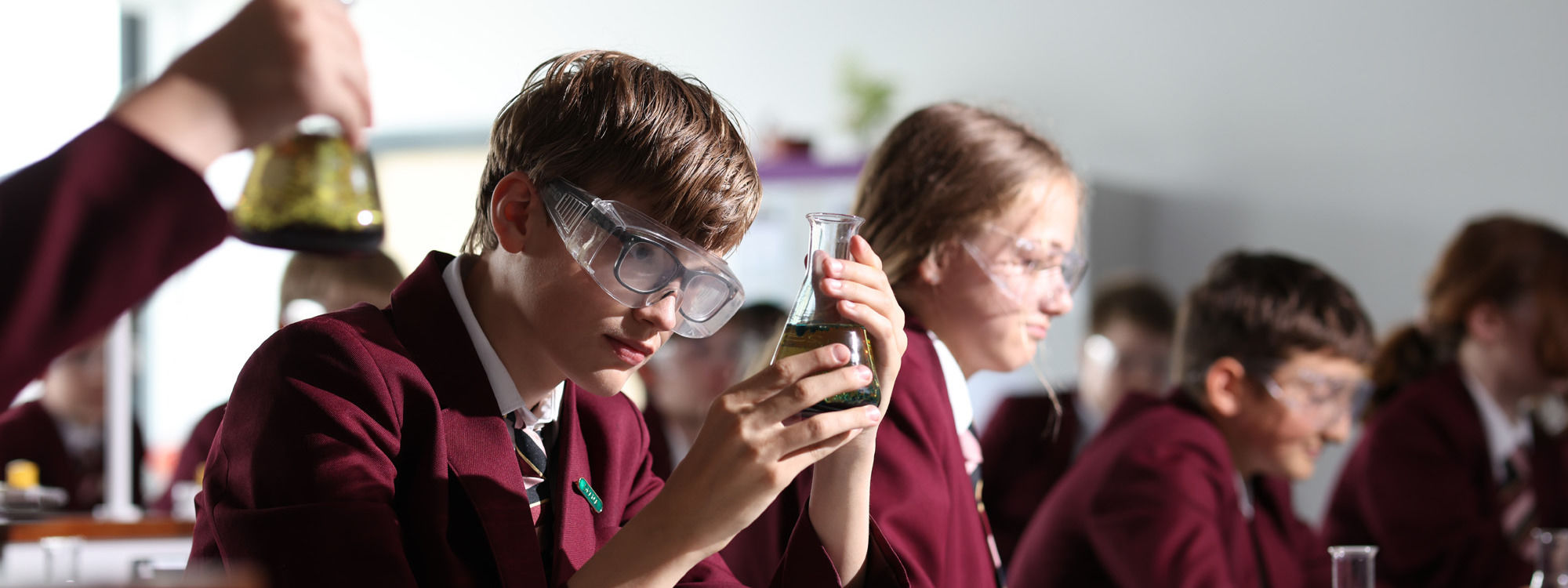- Home
- Learning & Curriculum
- Subject Information
- Physics
Physics
BackOur science curriculum has been designed to provide students with a deep understanding of the scientific knowledge and ideas that impact them as individuals within a local and globalised context. As they move through the curriculum, students will be empowered to develop their curiosity, provide insight into working scientifically and appreciate the value of science in their everyday lives. Our curriculum provides a platform for students to develop critical thinking skills which will prepare them for further education or careers in science. It also delivers a framework for understanding the natural world and supports students to become scientifically literate participants in society.
Our Curriculum, both at Key Stage 3 and Key Stage 4, focuses on assessing cumulative knowledge and skills to gain a better understanding of our students’ command of Science, whilst also identifying detailed targets for development.
Key Stage 3
At Key Stage 3, Hertswood students study science, which is delivered through three periods per week. Science is taught as topics to improve student's retention of information; these topics are drawn from biology, chemistry and physics.
The common thread throughout Key Stage 3 is guiding students to develop knowledge of the scientific world that surrounds them and how the sciences are an integral part of everyday life. Students build on their knowledge of forces and their interactions studied at KS2 and demonstrate their knowledge through regular assessment and practical work. Additionally, students learn about areas such as health and safety in the laboratory and careers in the science industries.
Key Stage 4
Students experience a wide range of new topics and skills at KS4 whilst following the AQA Trilogy or Triple Science specifications. Each topic strand is linked intrinsically to prior knowledge and skills from KS3 and builds in terms of complexity, skills and application. Our aim is that all students should leave the academy being able to understand and explain the scientific world around them and, more importantly, be equipped with the skills to problem solve and critically evaluate the ‘big’ moral questions.
Assessment of students’ understanding of the curriculum is constant and low-stakes. This is done through multiple-choice checkpoints and demonstrate tasks. This assessment aims to feed directly into planning so that lessons are personalised to meet the needs of all students.
Key Stage 5
A Level physics is an up-to-date, relevant course which suits students who possess an inquiring mind and ask “how?” when faced with a new experience. Above all, Physics is the science that underlies all other branches of science and attempts to explain how everything in the universe works. The course is intended to give a broad vision of how physics is done today and starts by exploring motion, forces and energy and how we use modern techniques to predict and plan motion, accident prevention and how materials behave. Students taking Physics often find employment in medicine, computing and finance. Typical sectors where physicists are found include; Research and Development, Medical Physics, Telecommunications and Design and Production.
|
Year |
Autumn |
Spring |
Summer |
|---|---|---|---|
|
Year 7 |
Working Scientifically Forces Energy |
Electromagnets |
Electromagnets Waves |
|
Year 8 |
Forces Electromagnets |
Energy Waves |
How science works |
|
Year 9 |
Energy |
Electricity |
Energy resources Atomic structure and radiation |
|
Year 10 GCSE |
Forces |
Forces Waves |
Waves Magnetism and electromagnetism |
|
Year 11 GCSE |
Space physics Electricity - Electric charges Particle model of matter - Particle model and pressure Atomic structure - Nuclear fission and fusion Forces - Moments Forces - Momentum |
Forces - Pressure Waves - Sound waves/Seismic waves Magnetism and electromagnetism - Generator effect/transformers
|
- |
| Year 12 A Level |
Fundamental physics Forces and moments |
Waves and Electricity |
Particle physics Periodic motion |
| Year 13 A Level |
Thermal Physics Engineering Physics Astrophysics (Choice dependent on the class) |
Fields and their consequences Nuclear Physics |
- |
Independent Learning Resources
- The Knowledge
- Quizlet
- Century
- CGP Revision and Workbook

